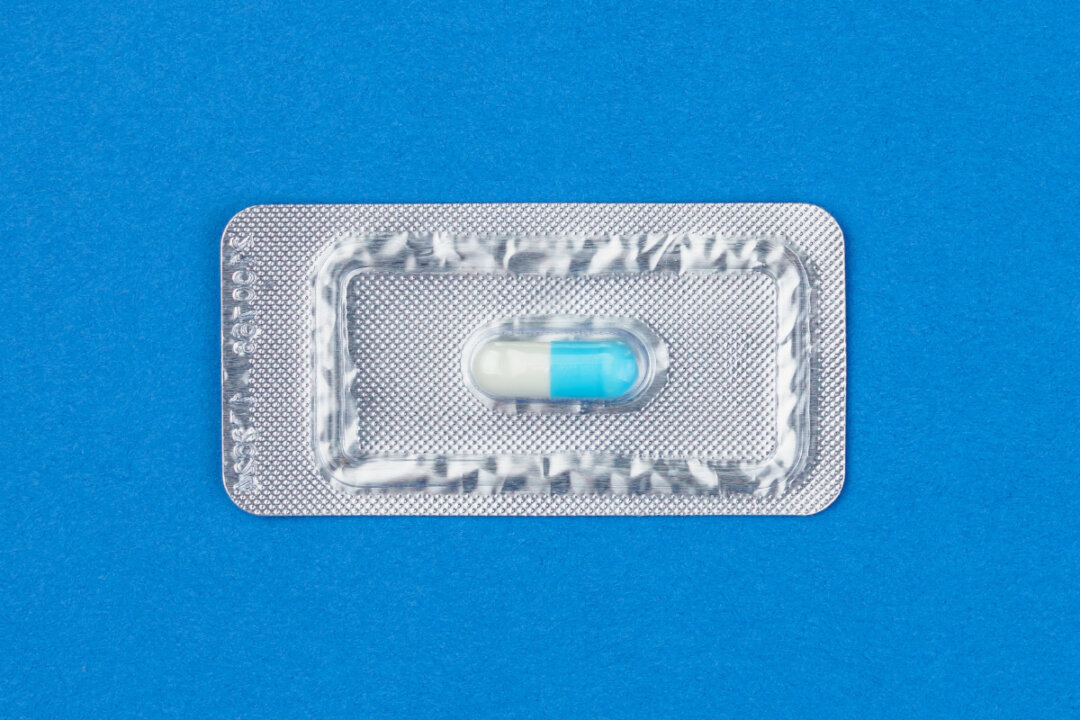
Pomalidomide, a bone marrow cancer drug, may be safely repurposed to treat a rare genetic blood disorder, according to a recent clinical trial. The Cleveland Clinic-led clinical trial was stopped early after demonstrating safety and effectiveness in treating hereditary hemorrhagic telangiectasia (HHT), a condition that currently has no cure. Dr.
Keith McCrae, professor of molecular medicine at the Cleveland Clinic who led the clinical trial, told The Epoch Times that he was motivated to find a drug for a particular patient he had 15 years ago. “This particular client was extremely ill..

.was requiring tens of thousands of dollars worth of blood products every week and was essentially advised to have most of his intestine resected because he was bleeding there,” McCrae said. McCrae dug into the research and found that the cancer drug thalidomide helped patients with similar symptoms.
“I treated him with thalidomide, and within two or three weeks, his bleeding had essentially stopped,” he said. The study , published in the New England Journal of Medicine, assigned adults with HHT in a 2:1 ratio to receive either pomalidomide or a placebo for 24 weeks. The trial was planned to run for four years but was stopped at 24 weeks after a second analysis showed that pomalidomide had met the threshold for efficacy.
Sarrah Hein wasn’t aware of HHT until she was diagnosed at 26 while pregnant with her son, Anthony, who was also diagnosed with the condition. “Looking back, I had many of the signs and symptoms of HHT growing up. I had nosebleeds often, a large AVM (blood vessel tangles) in my lung, which made it harder to keep up with my classmates during cross-country practice, and I had low iron,” she told The Epoch Times.
Francesca, a 26-year-old from Italy, is waiting for her HHT diagnosis to come in a month. “I have frequent nosebleeds since I was a child, even at night. There are weeks when my nose bleeds every day.
My mother also has this problem,” she shared with The Epoch Times. However, like many others with HHT, nosebleeds were just the tip of the problem. Prior to this, Francesca had no idea about HHT.
“It was one of the surgeons who did my embolization who suggested that I might have it,” she stated. “Knowing that I was getting tired easily because of the AVMs and not because I was lazy was liberating ..
. on the other hand, it is scary enough to know that AVMs could pop up in my brain or anywhere.” Hein’s son Anthony had AVMs in his brain, which caused abnormal blood flow in his brain.
Looking ahead, Hein hopes for an oral medication that can reduce AVMs in the future. Managing HHT focuses on preventing nosebleeds by using blood thinners and more aggressive approaches, such as ablating abnormal vessels or surgically closing the nostrils. Severe cases may require regular iron or blood transfusions to treat anemia.
Researchers speculate that pomalidomide works by stopping the growth of abnormal blood vessels. “We do think that this drug does induce changes in the blood vessels themselves,” McCrae said. However, he added that actual tissue studies are needed to prove that.
Pomalidomide remained effective even at lower doses of 2 and 3 mg, which may reduce side effects. However, the dosing used in the study may have been too high, with researchers speculating that the 4 mg daily dose may have suppressed bone marrow, limiting hemoglobin production. “I’m treating a couple of patients off study now with lower doses, and their hemoglobin levels are quite normal,” McCrae said.
Mild side effects were seen, including low white blood cell count. However, this was reversible with dose reduction or discontinuation. Other side effects included constipation and rash.
Severe and potentially life-threatening adverse events were rare but more common in the pomalidomide group. Around a quarter of people in the pomalidomide withdrew during the trial, with 16 percent of those withdrawing because of adverse events, while 10 percent in the placebo group withdrew for other reasons. Neuropathy and platelet deficiency were also reported.
McCrae hopes that the drug will be more accessible in clinical practice. “These days, there are many things that we think can help patients that we really aren’t able to use because of difficulty in having them covered by insurers. And these medications are not inexpensive.
” He added that publishing the study will provide rigorous evidence of its efficacy, which he hopes will “lower the bar for getting insurance approval for those physicians and patients who want to try this because there are no FDA-approved drugs at all for this disease.”.














